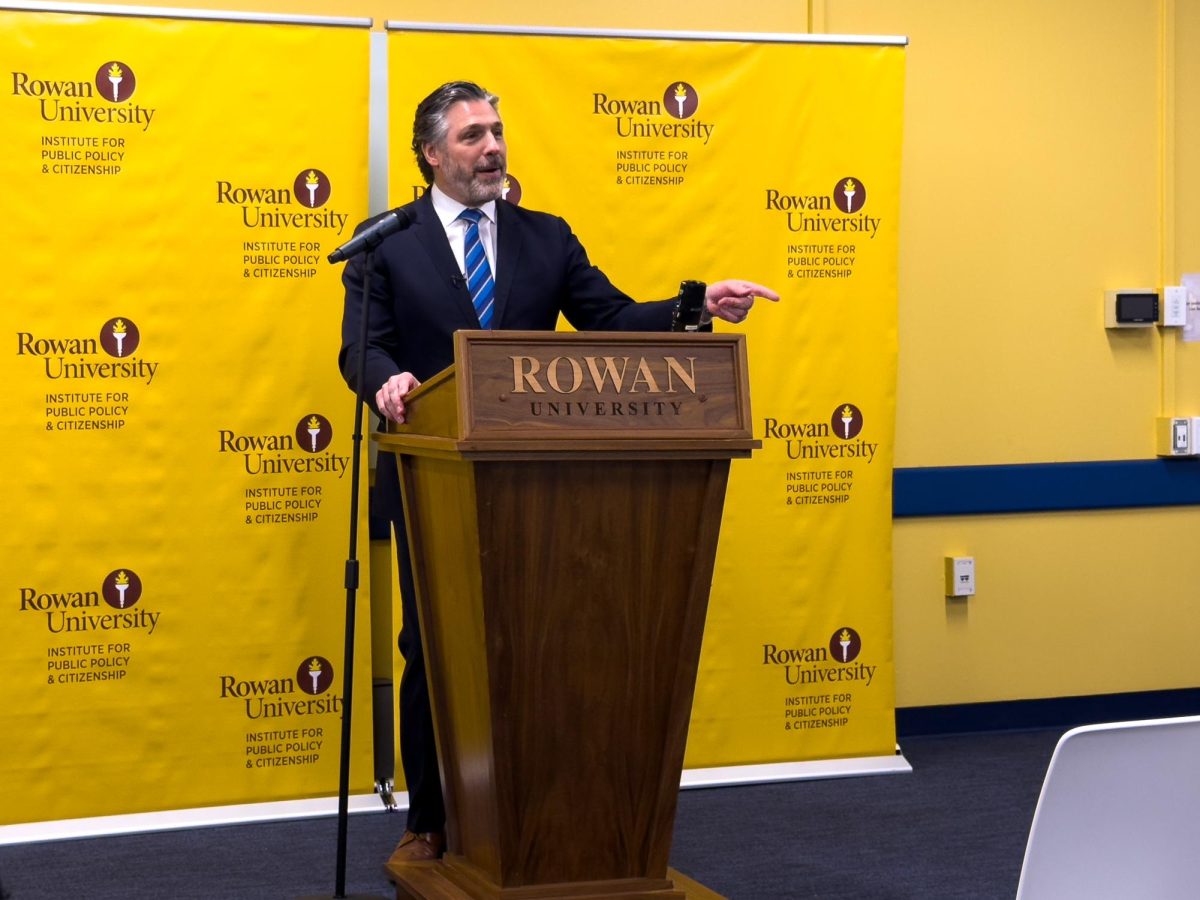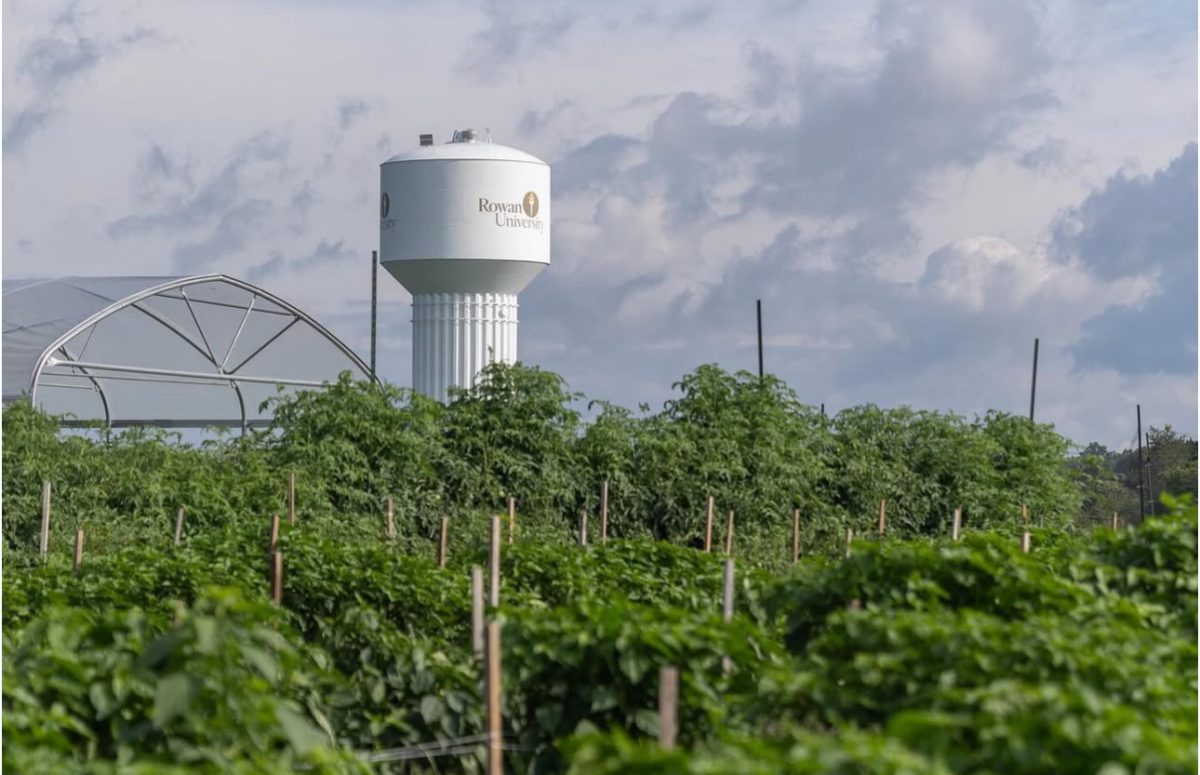On Tuesday, Dec. 1, the Rowan Institute for Public Policy and Citizenship (RIPPAC) hosted “So, What Happened?” a virtual event with guest panelist Steve Kornacki.
Kornacki, a 41-year-old Massachusetts native, carved out an extensive political journalism career, including comprehensive election coverage for MSNBC, which he is most known for in his profession as a national political correspondent.
“I always loved election nights as a kid; there was something about all the anticipation and build up,” Kornacki said. “You play through all the scenarios in your head about a candidate, and you get the picture to come into focus. It’s like the old Polaroid camera where you take a picture and wait for the photo to develop.”
Kornacki may have his roots in Massachusetts, but his political and election coverage would start right here in New Jersey.
After graduating from Boston University in 2001, Kornacki wasn’t adamant about any career choice and went to Los Angeles with some college friends in the hopes of winning a game show and starting his life there.
“That didn’t work out, if you can believe it,” said Kornacki.
His short-lived dream of game show fame subsided, but Kornacki would eventually wind up on TV all the same. His first gig as a journalist came in 2002 for the website PoliticsNJ.com.
“This was a total novelty back then; no print product, just online, devoted to New Jersey state politics. I applied, got it, moved to New Jersey, covered New Jersey politics for three years,” said Kornacki.
Kornacki quickly learned how unique New Jersey politics are, particularly with its powerful county-level political machines, which have become relics in modern America.
“What’s fascinating to me is how much power — by that I mean money and contracts — goes to the county and local level in New Jersey. It creates high stakes at the county level. They are on the decline in the long term, but still, you have these cities, counties and local political machines that are obsolete elsewhere,” he said.
The complexity of New Jersey bureaucracy also helped him gain extensive knowledge of the more nuanced facets of politics.
“Learning politics that way is a valuable experience because you get some insight into human nature watching them operate like that,” he said.
New Jersey is also the state Kornacki learned about his love for election coverage, referencing the 2005 gubernatorial race between Jon Corzine and Doug Forrester.
Since writing for PoliticsNJ.com, he has moved onto more significant elections like midterms and the general elections. He has covered those for MSNBC since 2014.
Kornacki shared his notes on North Carolina for the 2020 presidential election; the paper he held up looked more like an obsessive conspiracy theorists’ drawings than election notes.
“In these notes, I’m looking at racial demographics, swings, population and variance in poll closing times, among other things. I write these notes for every state, sometimes for counties when there is relevant municipal data. It’s a process that’s like cramming for finals,” he said.
With his producers’ help, he offers consumers a window into the political leanings of various counties ranging from relevancy to obscurity. With his notes growing with every election, he is equipped to analyze what happened in the 2020 presidential election compared to previous ones.
“I would say that a lot of what happened in 2016 happened again in 2020, with the larger turnout and small but significant shifts from Trump to Biden,” said Kornacki. “In 2016, the story with Trump was that certain areas demographically swung 20 to 30 more points Republican than they had voted in the past.”
According to Kornacki, these locations were areas with large blue-collar white voters, rural white voters, and white voters without college degrees, which he states became the Trump base.
“The map in 2020 basically doesn’t contain those dramatic surges to anyone. It did show some erosion amongst the Trump voters I’m talking about,” he said.
For example, Kornacki brought up Lackawanna County in Pennsylvania, home of Scranton. In the 2012 election, Obama won Lackawanna by 28 points. In 2016, Hillary Clinton won this county by only three points, which shows the surge of Trump’s first run.
“In 2020, Joe Biden won [Lackawanna] by eight points, so it’s a small shift. Biden didn’t get anywhere near back where Barack Obama did in Lackawanna, but he did a tic better than Hillary did. Those add up; if you can improve by five points in all these Lackawanna counties all over the place, it’s going to add up,” said Kornacki.

Biden was able to outperform Clinton in many ways, but Democrats got a significant advantage in suburban and surrounding metropolitan areas in particular, which helped him win crucial swing states.
Another facet of the 2020 election that Kornacki observed was a shift in Trump’s support regarding Hispanic voters in particular. While it was not enough to offset Biden’s victory, it’s still noteworthy.
“Trump won Florida by a more significant margin this time then he did in 2016, Hispanic votes in Miami-Dade county was a huge reason for that. South Texas, along the border, Trump had dramatic 30-point improvements there in overwhelmingly Hispanic counties. He also had small yet noticeable improvements in core cities,” Kornacki said.
To the best of his knowledge, Kornacki doesn’t believe the United States democratic process is under threat even though President Trump has yet to concede the election.
“We see the gears in motion, the institutions that keep this all going are still functioning, there is a lot more ‘in the air’ than we’ve seen, but it’s not, in this case, affecting the ultimate transfer of power,” he said. “Could the rhetoric, the tactics, the posture that we see ultimately create a set of conditions in a ripple effect that affects future selections? I don’t know what to say to that.”
Kornacki defined the changes in voting habits from previous elections, the problems with polling and offered some career advice to young journalists. RIPPAC’s next guest will be announced soon, but you can view earlier events on their Rowan website page.
For comments/questions about this story, email [email protected] or tweet @TheWhitOnline.
























































































































































!["Working with [Dr. Lynch] is always a learning experience for me. She is a treasure,” said Thomas. - Staff Writer / Kacie Scibilia](https://thewhitonline.com/wp-content/uploads/2025/04/choir-1-1200x694.jpg)


















































